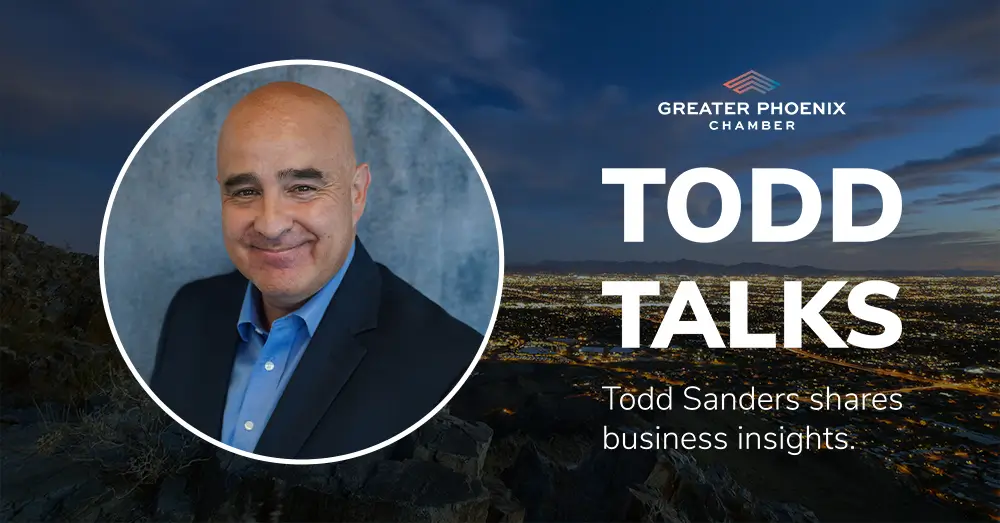Co-authored by Todd Sanders, President and CEO of the Greater Phoenix Chamber, and Carrie Masters, CEO of St. Joseph the Worker
The Greater Phoenix Chamber and St. Joseph the Worker urge you to remember the Valley’s disadvantaged, unhoused, and transitioning individuals not just during this season of giving but throughout the entire year. The Greater Phoenix region is a thriving metropolis with a diverse economy, a burgeoning tech sector, and a growing downtown. Yet, like many large cities, it faces a serious housing insecurity crisis. As a community, we need to recognize that homelessness is not just a humanitarian issue; it’s also an economic one. Addressing it with compassion and strategic thinking can lead to a more robust and prosperous Phoenix.
One of the primary challenges for individuals experiencing homelessness or housing instability is access to stable, meaningful employment. Likewise, common barriers such individuals often face when looking for and upon finding employment include limited access to transportation, financial constraints for interview expenses and appropriate attire, a lack of necessary certifications, and securing stable housing.
By breaking down barriers to employment and by providing training, support, and the necessary resources through programs and organizations like St. Joseph the Worker (SJW) and Connect to Work AZ, we can help unemployed or underemployed individuals return to the workforce and become self-sufficient, productive members of society. This, in turn, positively impacts economic mobility in Phoenix’s historically underserved communities.
Connect to Work AZ, an initiative of the Greater Phoenix Chamber Foundation, helps qualified unemployed and underemployed individuals connect to jobs with benefits and opportunities for growth in healthcare and financial services. This initiative, launched in May 2023, partners with well-known companies sourcing candidates for positions such as medical assistant, diet representative, and client services representative. Employers receive new and more diverse candidates they might not otherwise meet through their traditional hiring process. For candidates, working in these positions may be the first step in their journey to economic mobility and a brighter future for their families.
Founded in 1988, SJW has played a significant role in these efforts. The nonprofit’s free Employment Without Barriers program provides employment opportunities for anyone who is stable, prepared, and eager to work, regardless of the economic climate or their individual situation. Moreover, the Workforce Villages program, a transitional housing initiative, offers housing to full-time workers who are unable to afford housing. During the 90-day program, clients not only have a safe place to stay but also save 80% of their net income in their own personal bank accounts, leaving them with enough money for their own apartments once the program ends. They also receive comprehensive financial literacy training, nine months of ongoing support, and weekly meetings with dedicated Workforce Villages Specialists, focusing on essential life skills such as budgeting, meal planning, and other vital life skills to be self-sufficient.
Local businesses even have the opportunity to get involved while reinforcing the local economy by filling their open positions with qualified applicants. Throughout the years, SJW has developed a Preferred Business Partner (PBP) program with various employers willing to pay staff a minimum of $17/hour, along with full-time opportunities and benefits. Currently, SJW partners with more than 51 Valley employers to connect disadvantaged individuals with quality jobs. PBP’s can also refer existing workers to SJW for resources and/or the Workforce Villages Program.
When we invest in our unemployed and underemployed populations, we invest in individuals who can, in turn, contribute to our local economy. These individuals have the potential to become consumers, taxpayers, and contributors to the economic growth of Phoenix. By helping them gain financial stability in their lives, we create a win-win situation where everyone benefits.


